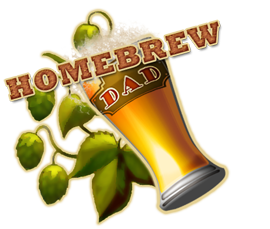Olan Suddeth
Dad. Computer geek.Homebrewer. Disney nut.
Would-be crafty guy.

Amazon
Save Money
Ibotta
Fetch Rewards
(use code "116YB")




Canker sores - also known as mouth ulcers - suck.
There is no polite way to phrase that. These horrible sores pop up in your mouth - most often on your gums, inside of your lips, and tongue - and cause days of unending pain. To make matters worse, lots of people (like myself) seldom get one such sore; they tend to come in twos and threes and fives.
To clarify - this post is NOT about cold sores (the type that show up on the outside of your lip), but about canker sores that form inside of your mouth. Also, please note that I am not a medical professional, do not play one on TV, and am speaking simply from personal experience. Keep that in mind as you consider my words.
I've seen all sorts of suggestions for why these sores pop up, but one thing that pretty much every source agrees on is this - there is no actual cure for them.
However, there are ways to both treat and help prevent getting canker sores. I have tried so many methods over the years, but have finally found some pretty reliable approaches. I've tried various medications, home remedies of all sorts (yes, a match head pressed into the wound hurts incredibly bad, but does little to improve it), ointments... you name it. I won't claim that I have any magical secrets that will work for everyone, but I can say that my outbreaks are far less frequent and last for far less time these days, so hopefully, this article can help you.
First off, let's look at preventative measures, as the absolute best way to deal with painful ulcers in your mouth is to avoid ever having them in the first place!
Preventataive Measures
- Consider your diet. Some people have found that really acidic foods - oranges, lemons, limes, pineapples, strawberries, apples, figs, tomatoes - can lead to more outbreaks. If you are having an outbreak, these foods can make it worse... and they absolutely, positively will hurt like crazy if they come into contact with a sore.
- Use NSAIDs judiciously. This spring, I hurt my elbow running little league baseball practice, and kept aggravating it by being stubborn and pitching to my kids multiple days per week. To cope, I took a fair amount of Advil to fight the swelling and pain. Lo and behold, I found myself in the midst of several bad canker sore outbreaks; as soon as one set would heal, another would crop up.
It was only after my wife started reading about this online that I discovered that NSAIDs - ibuprofen (Advil, Motrin), naproxen (Aleve), even good old aspirin - can drastically increase the rate of canker outbreaks. A dose here and there is probably fine... but eating them frequently like I was will put you at risk of ulcer fun. - Cut down on stress. Yeah, yeah... I know, I may as well tell you to cut down on how many magical unicorns you ride to work. The fact is, though, that if I'm having an outbreak, odds are great that I'm worrying about a work project, stressing about money matters, working on some event, etc.
- Look at your toothpaste. Most toothpastes contain Sodium Lauryl Sulfate (SLS) - a caustic detergent that causes the stereotypical foaming action when you brush your teeth. SLS has been clinically proven to increase canker outbreaks, so it may be worth it to switch to an SLS free toothpaste for a month or so, and see if you gain any benefit.
- Are you getting enough vitamin B? Deficiencies in the various B vitamins - riboflavin, thiamin, B-6, B-12 - have been associated with recurrent development of canker sores. If you are not supplementing with B vitamins already, you should seriously consider adding a good Vitamin B Complex.
- Don't forget L-Lysine! Movie buffs may recognize L-Lysine as the protein that the dinosaurs in the original Jurassic Park could not synthesize on their own - it had to be provided in their diet in order for them to survive. Ahem.
L-Lysine is an important protein that many of us are deficient on. After reading about how people who used L-Lysine had seem dramatic decreases in the frequency of their canker outbreaks, I gave it a try... and the results have been phenomenal! I have gone from an outbreak every few weeks to a couple per year. If I forget to take my supplement, I am frequently reminded by a stinging ulcer in my mouth; this has made a real believer out of me.
There may be no magic answers, but adding an L-Lysine supplement to my diet has made a tremendous, positive change for me.
Now, then. While prevention is of course the best cure, the fact is, you can do everything right but still get canker sores. So now, let's look at treatment options.
Treatment Options
- Warm salt water. Swishing salt water over the ulcer several times a day can help. Allegedly. I suppose.
I've never found this to be much help to me, but your mileage may vary. - Painkilling gels and ointments. They go by multiple brand names - Orajel, Ambesol, Blistex, and so on. They come in varying strengths, typically using topical lidocaine for pain relief. And they do provide relief... for a few minutes.
They also sting like crazy when applied to a sore, and when the pain returns, it often seems worse. I have found that they inflame the sore and the area around it, and that sores I treat repeatedly seem to last longer than those that I ignore. - That said, you need to be able to eat. I have found that there is exactly one over the counter product worth buying - Kanka Mouth Pain Liquid (now owned by Blistex). This stuff numbs the area with 20% lidocaine (the strongest you can buy over the counter), and also creates a weird gummy film over the sore, which helps protect it while you eat. Be warned, it still leads to the same inflammation and extended durations issues that other topical treatments deal with, but the film it creates can be a lifesaver at meal times.
- Prescription meds. A few years ago, I had an internal medicine doc offer me a prescription for Valtrex to help with the sores. Valtrex (aka valcyclovir) is used to treat viral infections such as herpes. I tried it, and it did help.
I have had both doctors and dentists argue with me that antivirals like this are useless for canker sores, and I have had both doctors and dentists swear that these medications can absolutely help. I will say that if I take a day or two of these antivirals as soon as an outbreak starts, the sores are less painful and tend to stick around for about half as long as they normally do. I cannot say if this will help you, but I do think that it is absolutely worth speaking to your medical professional about. I make it a point to keep a current prescription on hand. - The nuclear option. If all else fails and you have a really painful canker that just will not go away, I can offer you a nigh-foolproof method to treat it: silver nitrate sticks.
Be warned! Silver nitrate is NOT for the faint of heart. You dry the sore, dip the applicator tip in water for a moment, then paint the sore with the silver nitrate. I promise you before you do it - you only THINK that the sore was hurting before. The pain level of this process is downright EXCRUCIATING, as you are essentially chemically burning your flesh with it. Furthermore, you have to be careful, as it turns anything that the medicine touches a weird gray/blue color; this lasts only a day or so in your mouth, but clothing can be stained by it.
However, this method is as surefire way as there is to end a canker sore for good. It will hurt BADLY for a while after you treat it, but by the next day, the pain is almost always completely gone, and the sore will heal quickly after. One caveat is that you seem to have to let the sores fully form before they respond well to this treatment; if you touch a stick to a tiny new canker, you just hurt yourself for little benefit.
Tags for this post: Health
Permalink
Please share this post!




If you enjoy HomeBrew Dad, please support the site by using my Amazon affiliate link when doing any shopping there. All prices are exactly the same, but HomeBrew Dad will receive a commission on your purchases. Thanks!
